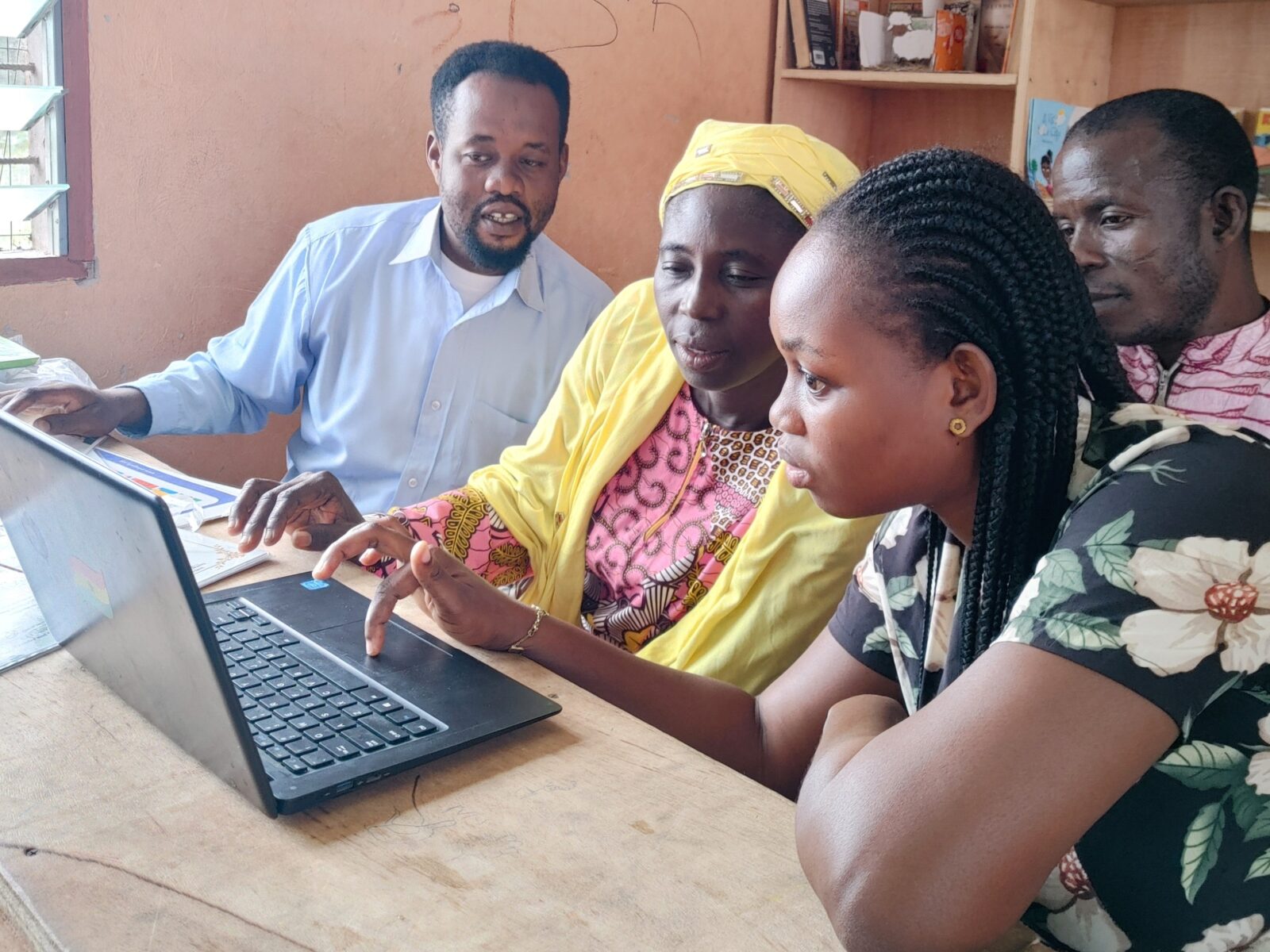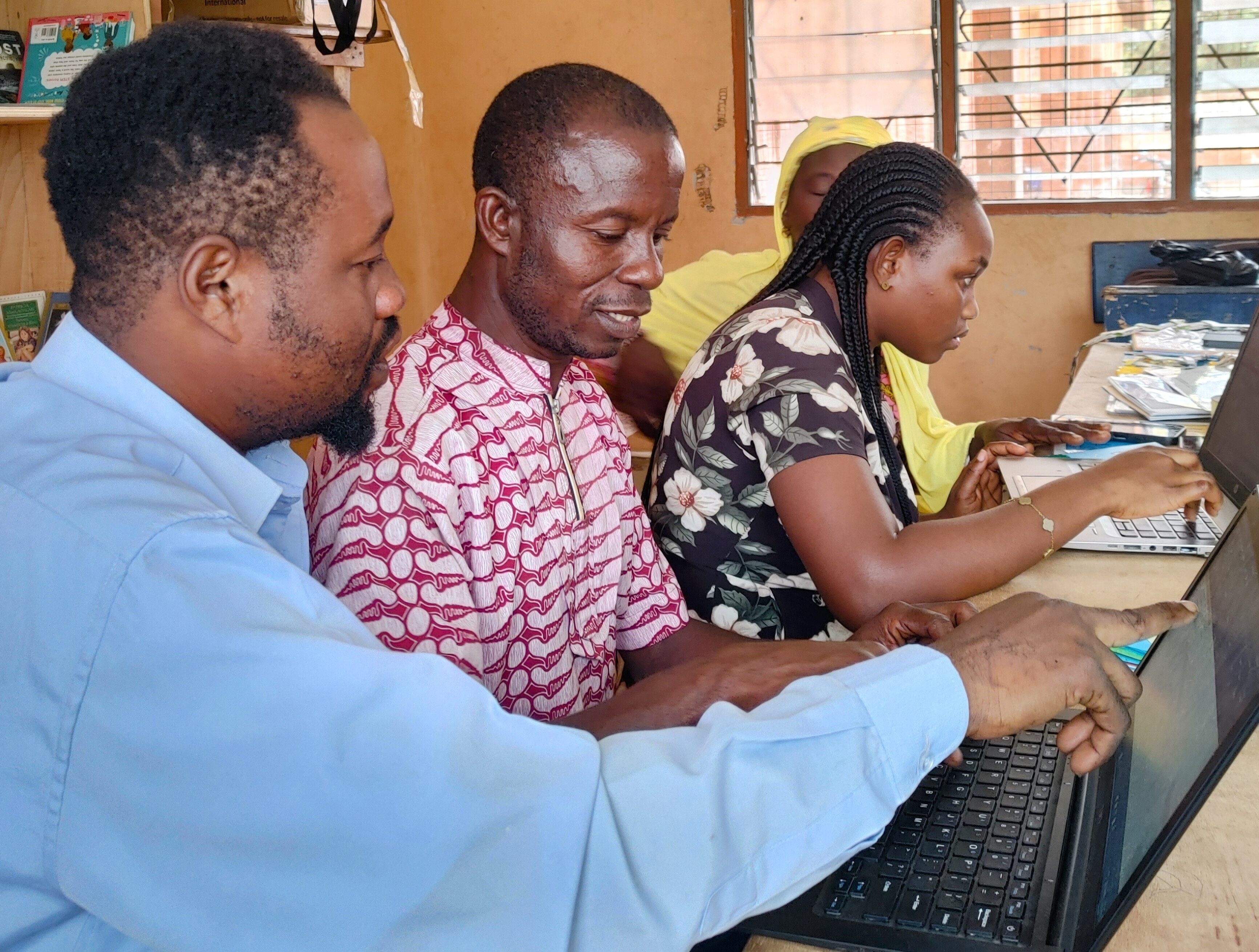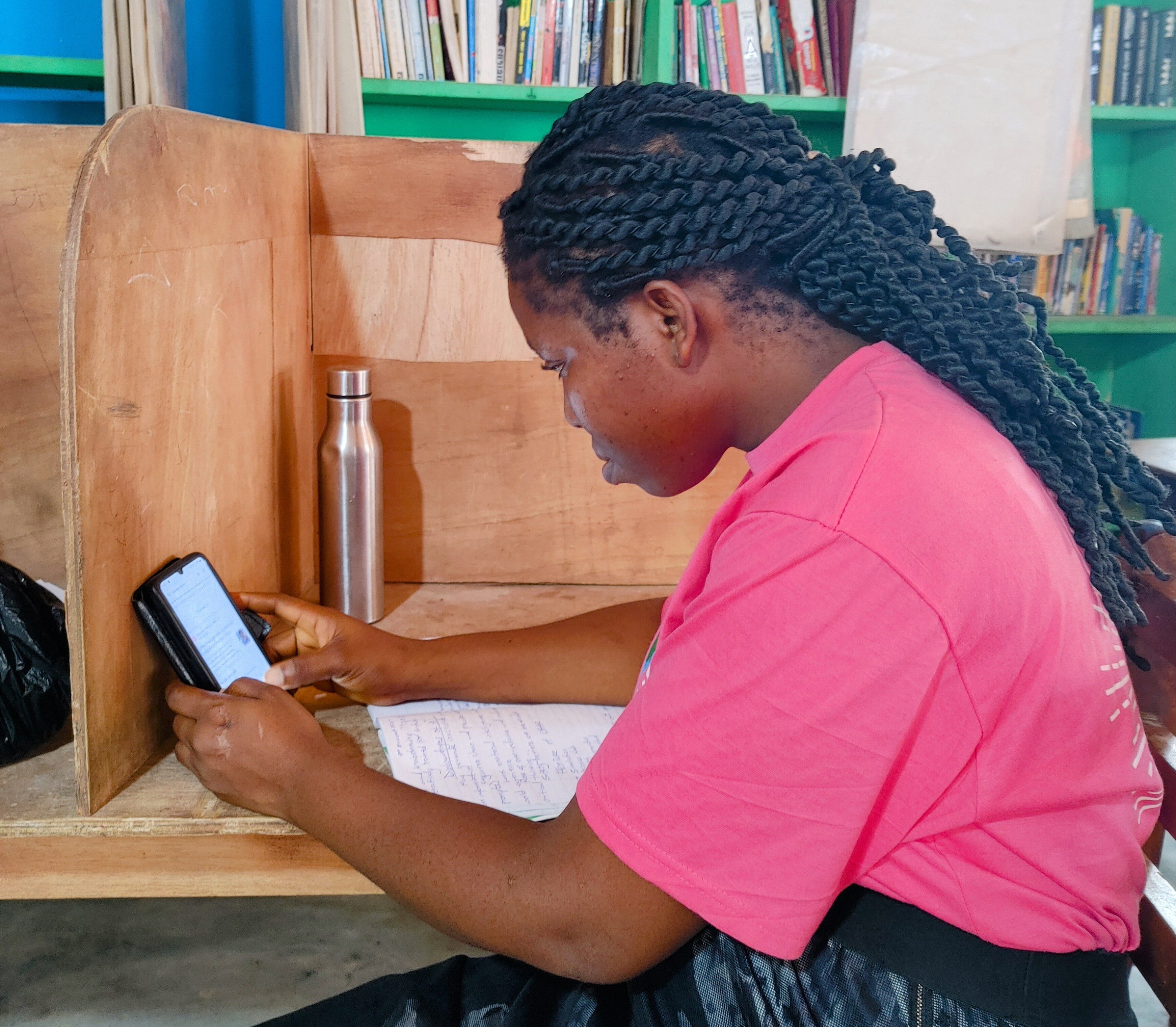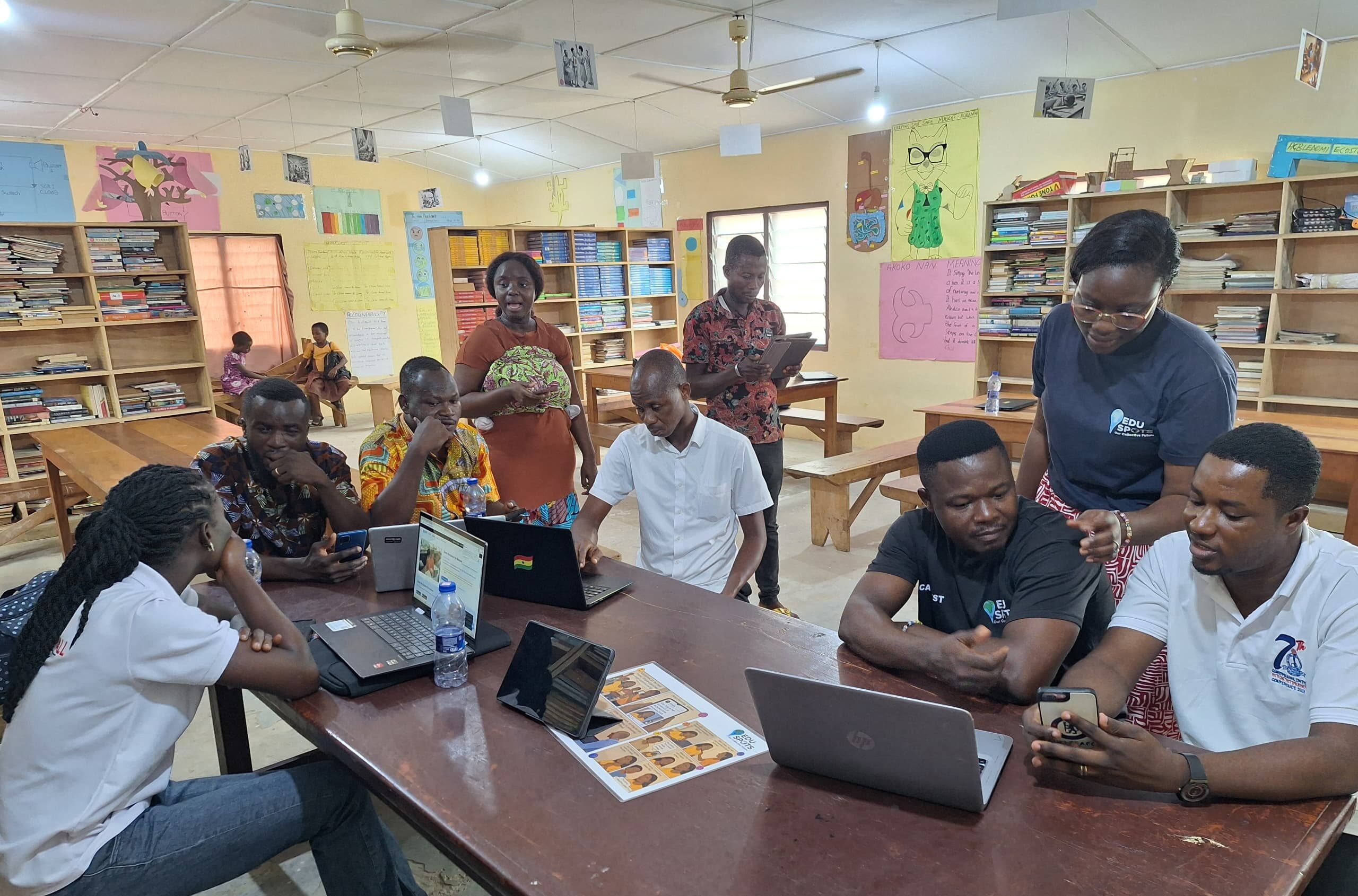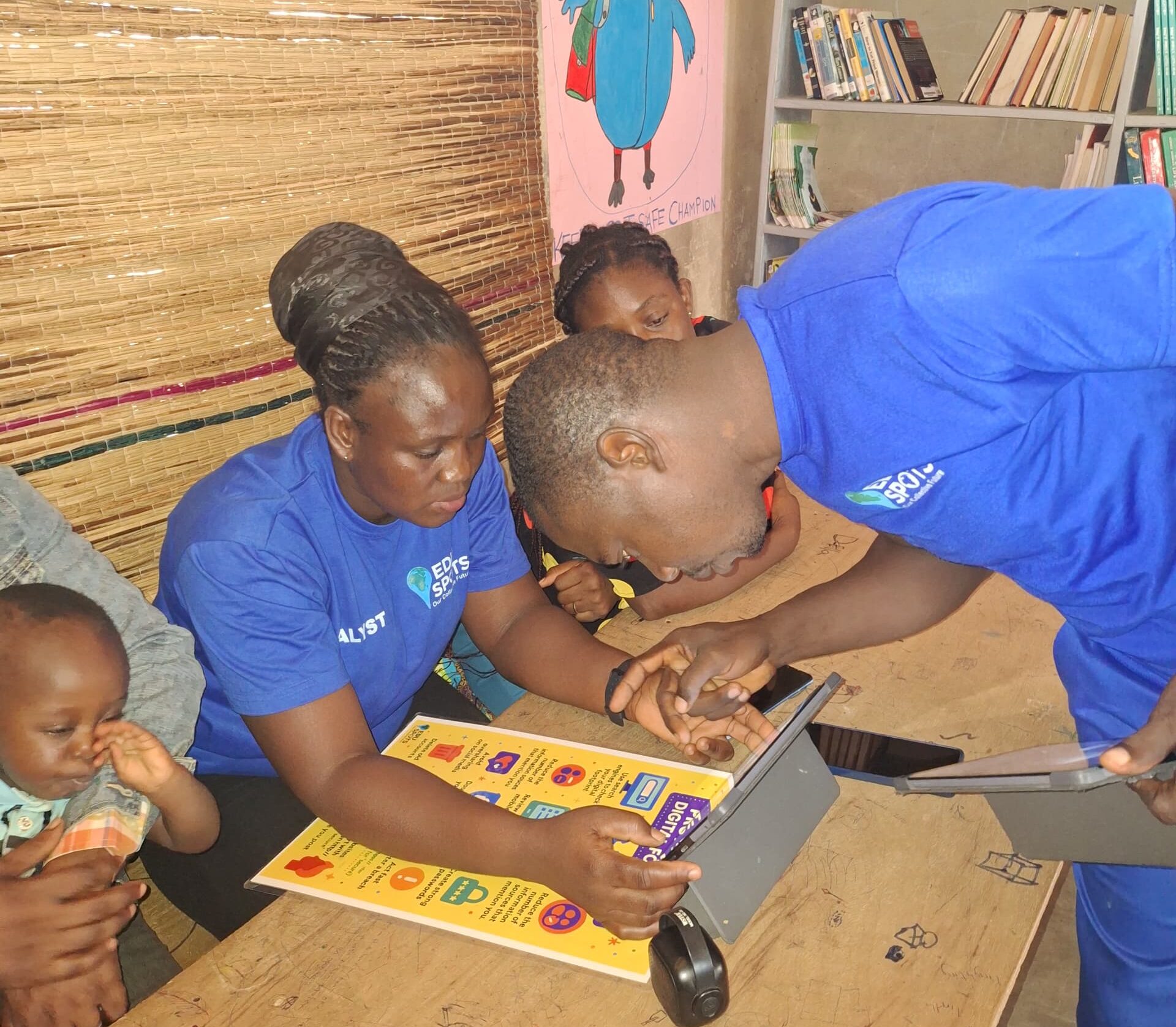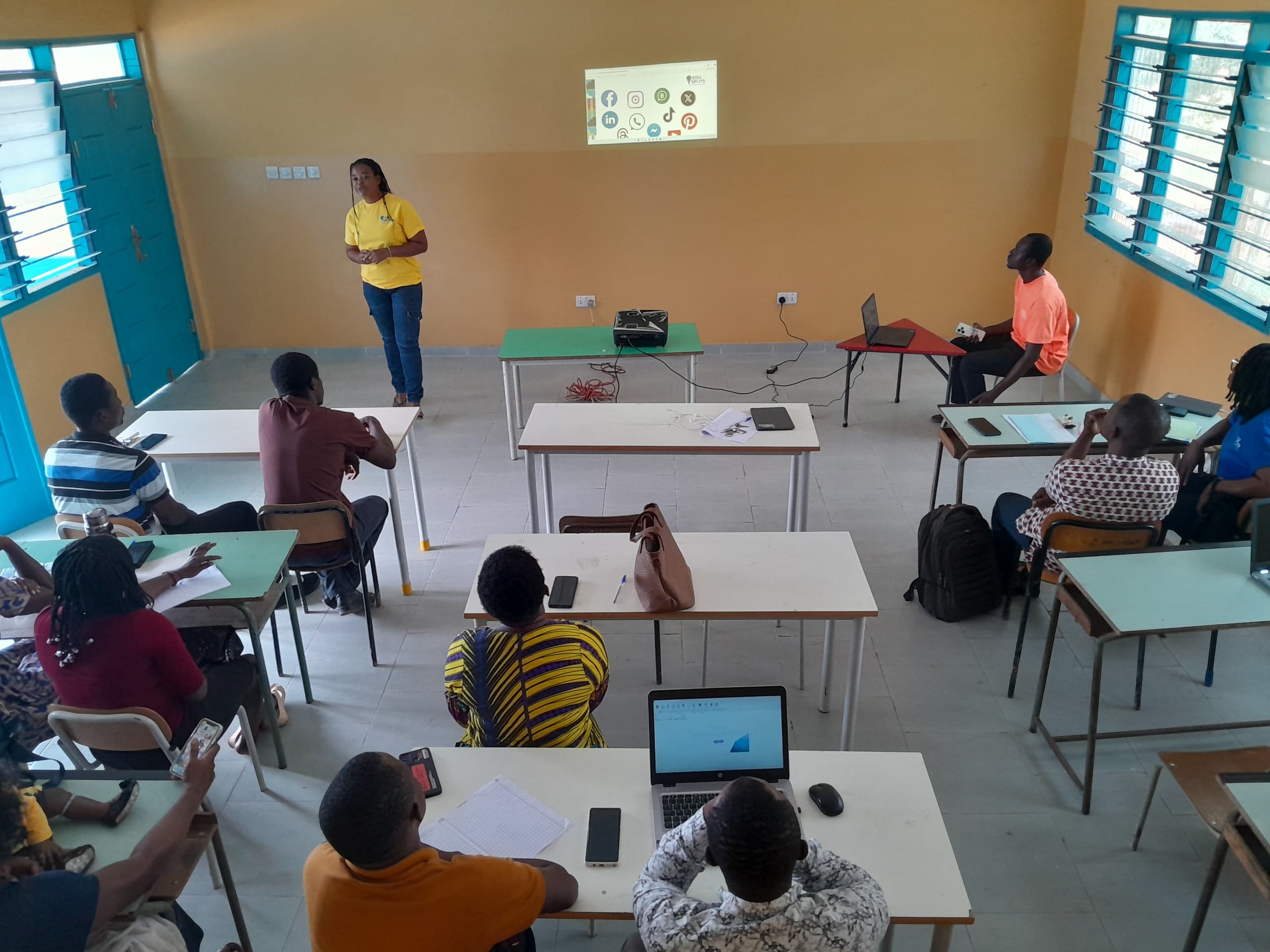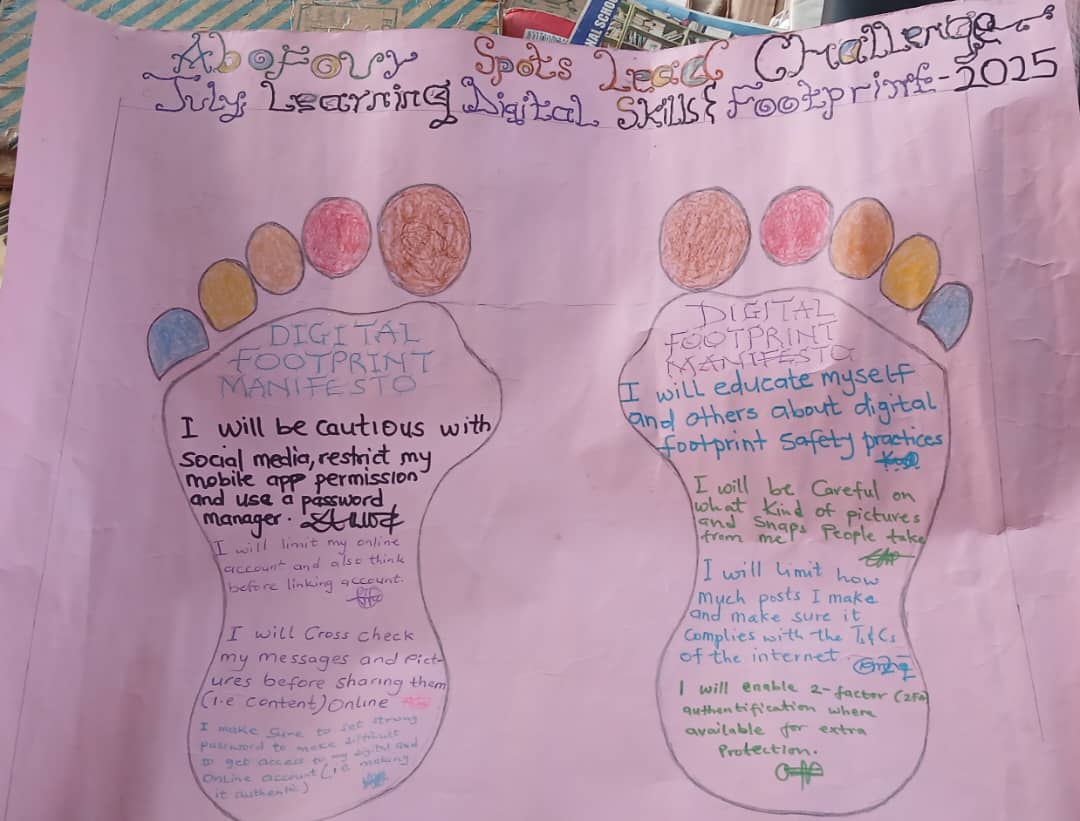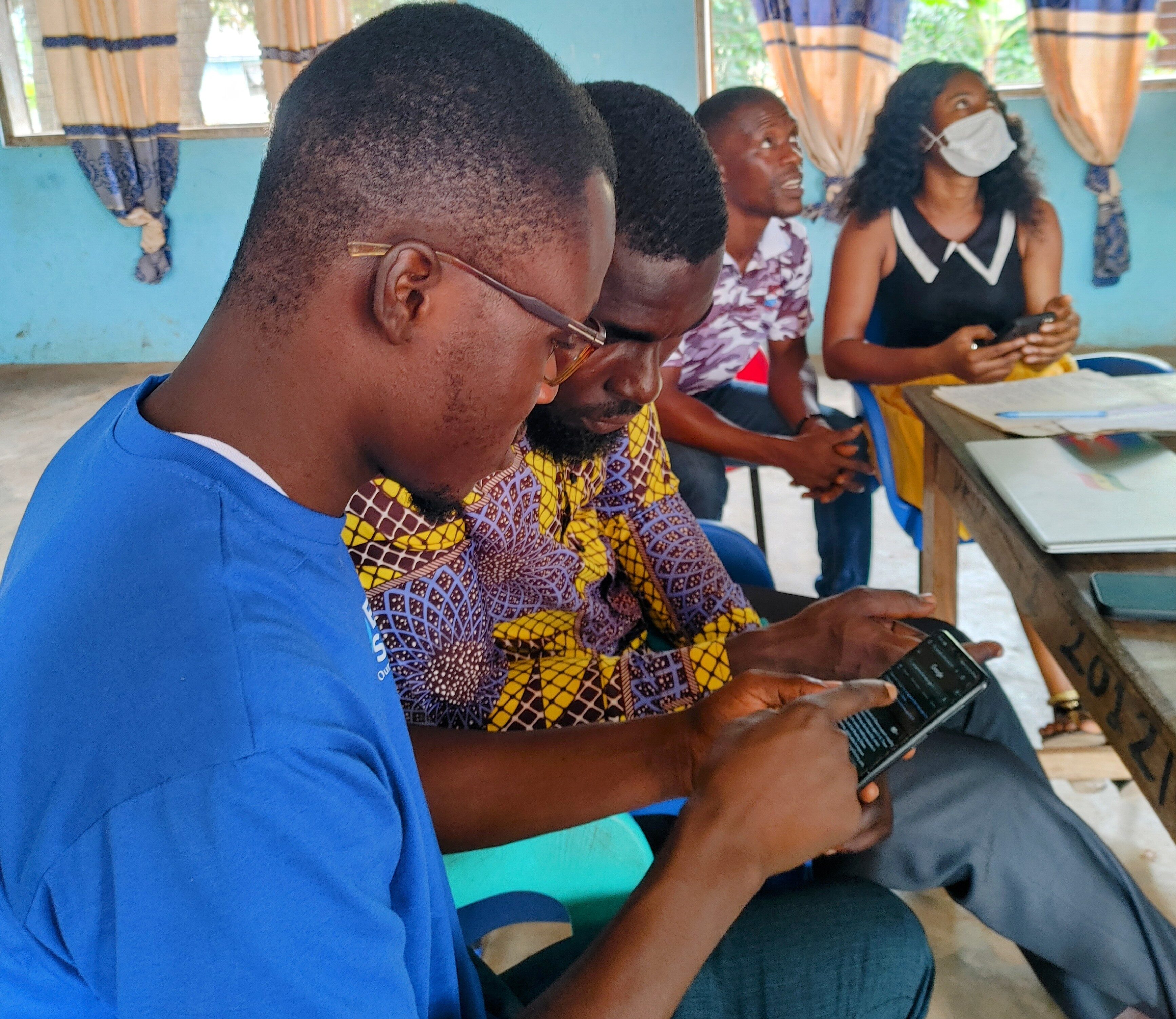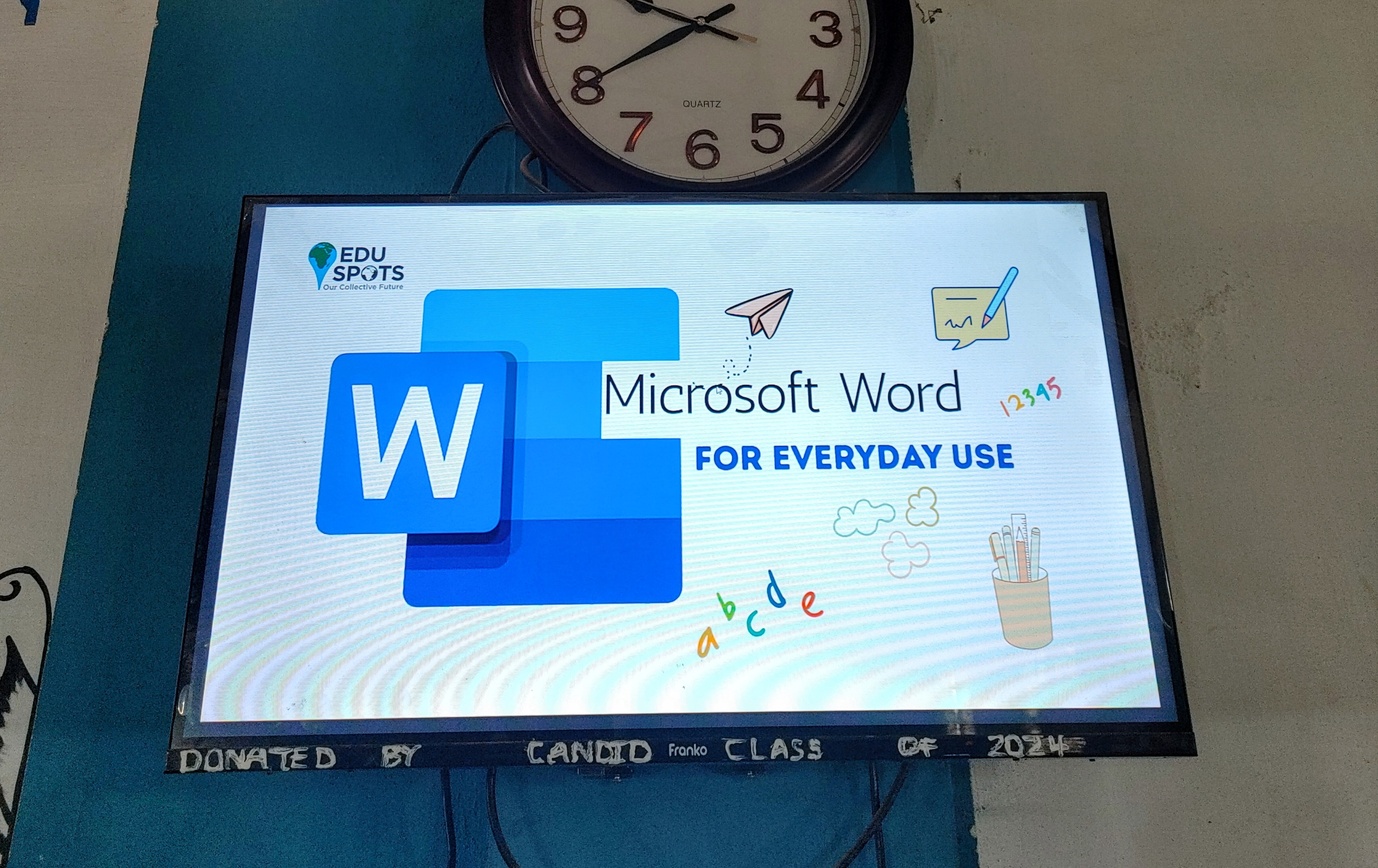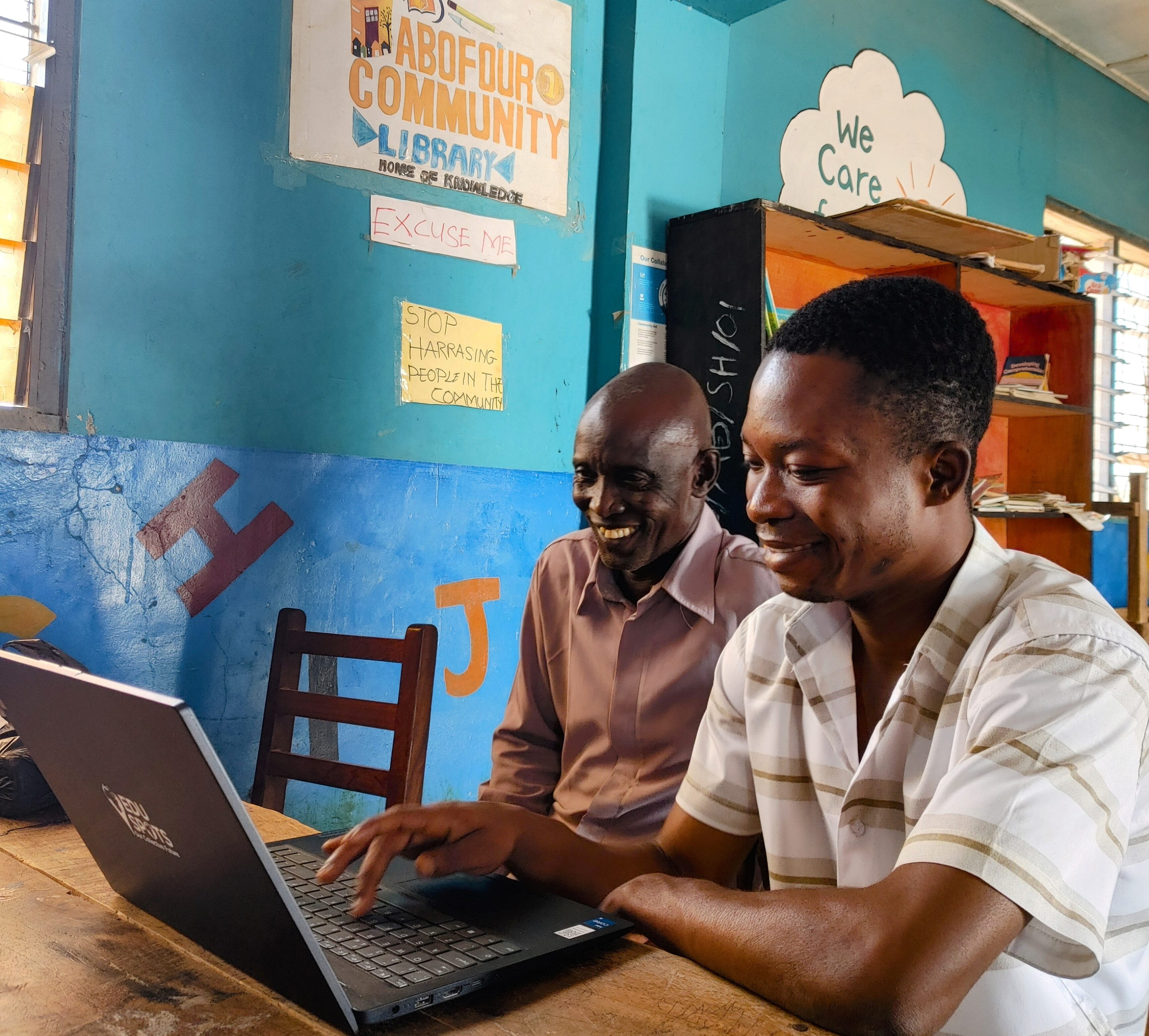Digital skills are no longer the “Next” big thing; they are the “Now” big thing. We are already in the digital era, and adaptation is essential for educators, professionals, learners, and communities to avoid being left behind. This demands intentional programmes and initiatives to build the digital competencies of learners and Catalysts, preparing them to lead in today’s digital world.
I’ve heard about Microsoft PowerPoint and have seen my lecturers use it during lectures. I love the images and the entire graphics; I just don’t know how to create one. After the training, I am now confident that I can design a basic PowerPoint for any session I am invited to present or share a story. (Muniru, Catalyst, Ejura Spot)
THE FUTURE IS HERE
“The future is already here, it’s just not very evenly distributed” (William Gibson)
With the rise of new technologies, especially Generative AI, which creates images, text, videos, and sounds to enhance productivity across sectors, including education, many still lack access to these tools and risk being left behind. Our digital skills initiatives are designed to close this gap in Ghana by ensuring that no community is left out of the digital future. Through collaboration with Catalysts and local resource persons, we equip local changemakers with the digital skills they need to lead transformation in their communities.
WHAT PERCEPTION ARE YOU CREATING FOR YOURSELF ONLINE?
“… I have realised today that anything you put on the internet can never be erased easily and can affect you in one way or another.” – Enoch, Catalyst, Nkonya Spot.
With the rise of technology and digital tools, Catalysts need to understand both the opportunities and risks of engaging online, including how to protect their reputation.
The digital footprint training session used storytelling and case studies to help Catalysts grasp the concept of a digital footprint, highlighting that every post, click, or information others share about them contributes to their online presence. They participated in a practical activity, using Google Search to explore the perception they are creating about themselves on the internet.
No Account? You’re Still Accounted For
“Even if you don’t have an online social media account, even if you haven’t personally uploaded any personal information online, that doesn’t mean it’s not there.” – Liviu Arsene (Senior E-threat Analyst, Bitdefender)
Initially, many Catalysts assumed that their digital presence existed only when they posted online. But through the session, they discovered that even without active posts, search engines and others’ content about them contribute to their passive digital footprint, often without their consent or awareness.
A Catalyst from Banda Kabrono Spot shared how he nearly faced disciplinary action at school after a video of him was posted on TikTok without his consent. Similarly, a Catalyst from Yamfo Spot recounted how a well-known friend asked him to take down a birthday photo he shared on WhatsApp because he was uncomfortable with the image. These personal stories sparked deeper reflection among Catalysts, encouraging them to be more intentional and respectful in their use of social media.
Who Owns Our Online Image?
Another subject that triggered a lot of discussion during the session was “who owns our online image, us, or the person who posted it?” Some Catalysts were of the view that they own their image, while others believed that the person who shared the image online owns it.
While this topic could be debated endlessly, Catalysts were encouraged to be bold enough to ask anyone who shares an uncomfortable image of them to change or remove it to protect their digital footprint.
By the end of the session, Catalysts came to understand that the person who took and shared the image technically owns it, as they control how it can be copied, used, or distributed. However, individuals still have rights to their likeness, including their face, body, voice, or anything else identifiable about them. They may be able to request that the image be taken down, or even pursue legal action if it is harmful, used commercially without consent, or violates their privacy.
Legally, if your friend took and posted the image, they own it. But you may still have certain rights over your likeness. Ultimately, ownership and control over your online image depend on several factors.
Protecting your digital footprint
“… Also, there are some dangers of using the internet, but the positive outweighs the risks, so it’s always better to be careful when interacting on the internet.” – Amos, Catalyst, Banda Kabrono Spot.
The session highlighted practical ways Catalysts can protect their digital footprint, such as keeping software up to date, regularly checking their footprint using search engines, limiting online mentions, creating strong passwords, avoiding public Wi-Fi for private data, thinking carefully before posting, acting quickly after a breach, and steering clear of unsafe websites. These points sparked engaging discussions and personal reflections.
One Catalyst shared a cautionary story about a female student who secretly used a male teacher’s phone to send herself a love message via WhatsApp, later using it to falsely implicate him. The situation nearly cost the teacher his job and was only resolved when witnesses came forward. This served as a strong reminder for all Catalysts to secure their digital devices and accounts with passwords to prevent unauthorised access.
Accountability And Role Of Employers
Using the case of Albert Nat Hyde (popularly known as Bongo Ideas) at the Next TV Star audition, Catalysts explored whether individuals should be held accountable for their past online behaviour indefinitely or given the opportunity for growth and forgiveness. Most Catalysts agreed that people should be accountable, especially if their behaviour poses harm to themselves or others, and should be encouraged to change. They also emphasised that values matter in hiring, so employers should consider online behaviour to assess fit with their organisation. These conversations highlighted the need for such training to remind us of the real impact our online actions can have on different areas of our lives.
Why Should We Care About Our Digital Footprint?
After sharing insights and experiences, we paused to reflect on a key question: “Why should we care about what we do online?”
This training matters for two main reasons:
- Once something is shared online, removing it can be very difficult, or even impossible.
- Our digital footprints can be used to influence, deceive, or harm us.
A striking example came from the January 2025 vetting of Minister Designates in Ghana’s parliament, where some had to account for old social media posts. This reminded us all of the lasting impact of our online actions.
Show Your Work
In order to be found, you must be findable…
Catalysts were encouraged to actively showcase the positive change they are leading in their communities on social media, build a strong and positive digital footprint, and share their learnings with learners, children, family, friends, and community members. They were advised not to avoid social media or online spaces out of fear of negative digital footprints, but instead to be intentional about their online presence. By taking control of their footprint, they ensure it reflects who they truly are; otherwise, others may inaccurately define it for them.
Digital Footprint Manifesto
All Catalysts who participated in the training committed to protecting their digital footprint by each writing one action they will take and signing a Digital Footprint Manifesto. This activity was done at the Spot level, where each team created a large footprint on a manila card and added their signatures. The Manifesto will be displayed at the Spot as a daily reminder of their pledge to safeguard their digital presence.
BUILDING THE DIGITAL SKILLS CAPACITY OF CATALYSTS
“During the PowerPoint training, I learned how to open PowerPoint and how to use colours and animation. I am going to use it in my school, as I am an ICT teacher and I don’t even get access to a computer; we always do theory. This is going to help me.” – Nafisa, Catalyst, Ejura Spot
A 2019 UNICEF study identified the lack of teacher capacity as the top barrier to developing digital literacy in learners. This is also linked to cultural resistance towards adopting ICT solutions. Most of our Catalysts, who are professional teachers, have limited access to digital skills training relevant to their work.
To address this, July was dedicated to helping Catalysts build one digital skill of their choice to improve their work. These trainings covered practical topics like:
- Video editing
- Microsoft Office tools (Word, Excel, PowerPoint)
- AI basics
- Google Drive
- Email writing
- Online collaboration and communication tools (Zoom & Google Meet)
Across the network, 50 hands-on training sessions were delivered concurrently at the Regional/Cluster level. These empowered Catalysts to actively use digital tools in their classroom and Spot activities.
As a result, all participating Catalysts gained at least one key digital competence, ranging from data literacy and collaboration to digital content creation and problem-solving to digital safety. They can now record student data using Excel, create local content with Inshot or CapCut, use AI for writing support, send professional emails, and search the web effectively.
WAY FORWARD
EduSpots’ July training forms part of its broader digital skills initiatives aimed at enhancing the digital literacy and competencies of its Catalysts. Key programmes include:
EduBytes: a monthly virtual training designed to address digital skills and professional development gaps identified by Catalysts. Each session is theme-based. The first training, held in March, focused on a Canva Beginner Level Course to boost content creation skills.
Digital Spotlight: a weekly update shared via the Spot Lead WhatsApp platform, offering Catalysts practical tips on digital tools, trends, and key digital literacy terms.
DigiLit Strand: A key education strand for primary ages learners in EduSpots, ensuring that digital skills are build alongside literacy skills as a core foundation to learning, with training teachers in digital skills a core part of this.
EduSpots calls on government and private sector stakeholders to partner in scaling these efforts. Support such as funding for digital training programmes, subsidised data and electricity, improved internet connectivity, and access to affordable digital devices like laptops is vital to ensure rural teachers can fully benefit from these training opportunities.
The future is already here, so how do we respond?
By: Isaac Kobby Ayibor

